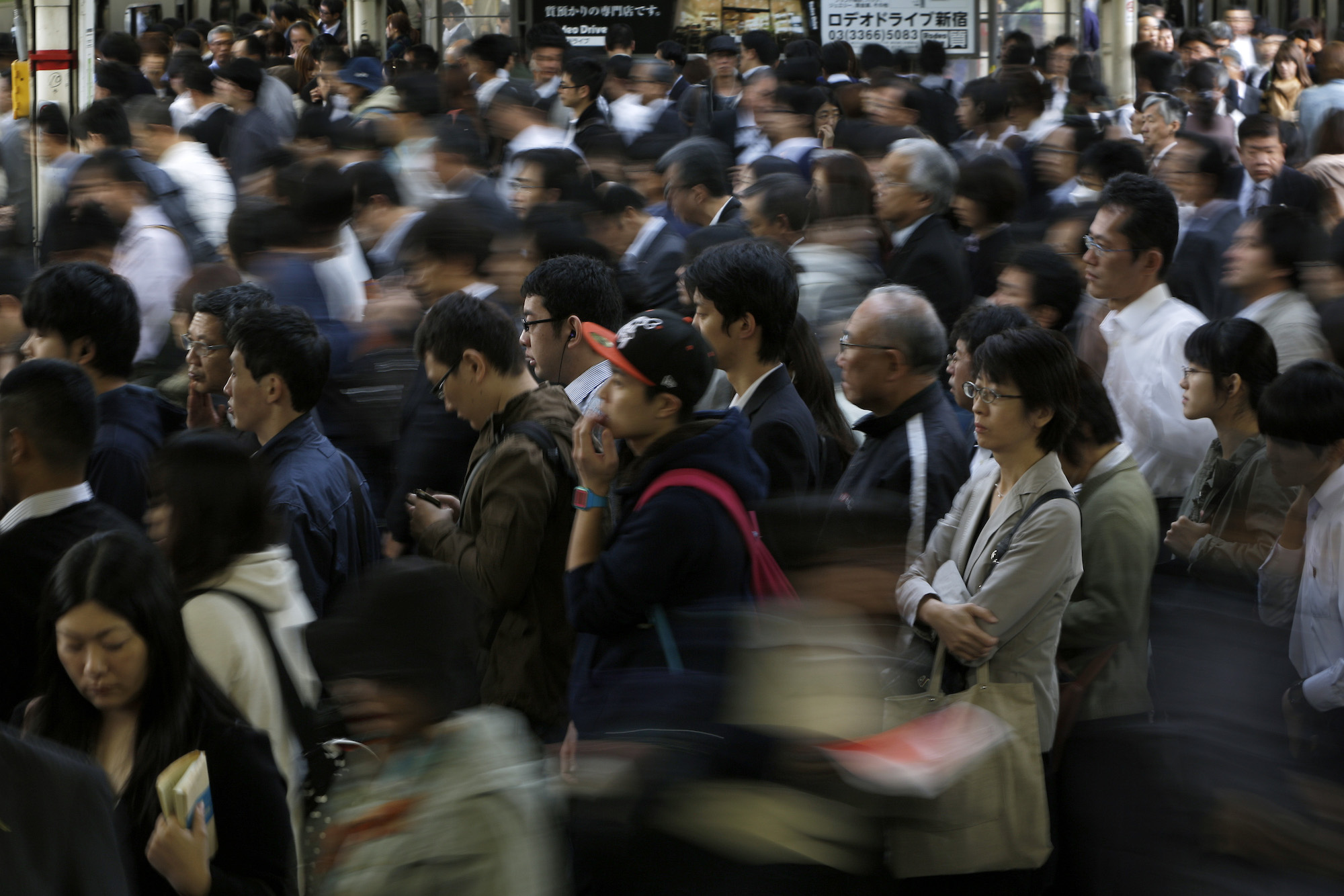Rush-hour congestion in big cities is a common problem in any country. In Tokyo and other major cities in Japan, passengers commute on heavily packed trains as everybody heads to work almost around the same time every morning. What's particularly striking is the typical scene observed when commuter trains are forced to make emergency stops. Most commuters do not give up trying to get to work and make long lines waiting to take buses or taxis so that they can get there as quickly as possible.
The way commuters in Japan spend so much energy getting to work at the same time as their colleagues may partly be explained as a manifestation of Japanese people's diligence. But such behavior also comes from social pressure that forces people to act in a manner that does not deviate from the group's collective behavior, which makes Japanese ways of work straitjacketed. The sight of company workers taking packed commuter trains even in this age of low economic growth reminds us of the strong power of peer pressure.
The tightening of regulations against long working hours in recent years is an attempt to change this social atmosphere. When people are engaged in the kind of work that requires long hours on the job, uniformly tightening work-hour regulation will negatively affect the results. But if people are spending unnecessarily long hours at work, and they can't shorten their hours because their colleagues are not going home yet, changing the general direction through regulations should have positive effects.



